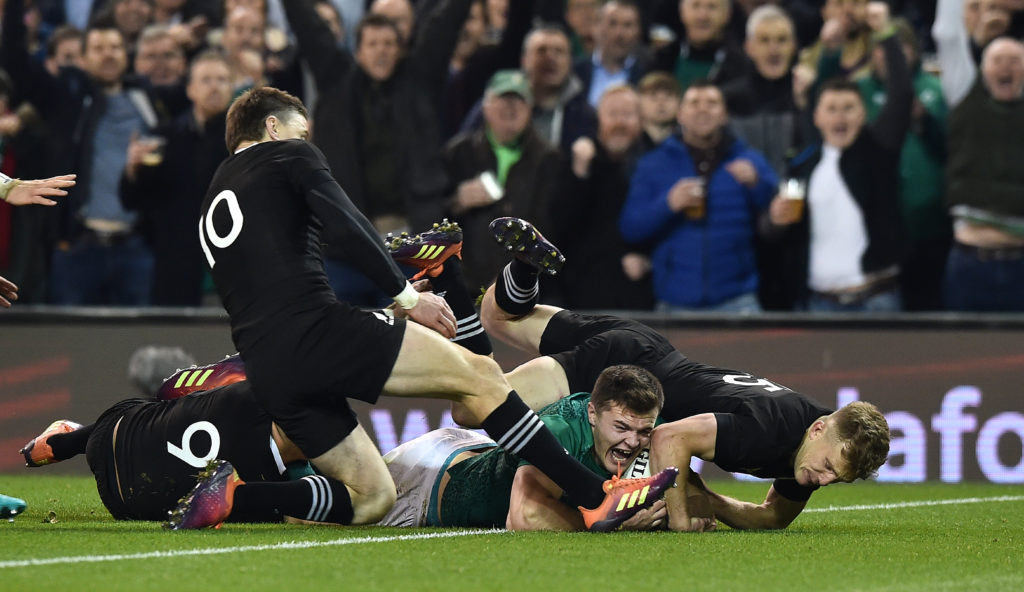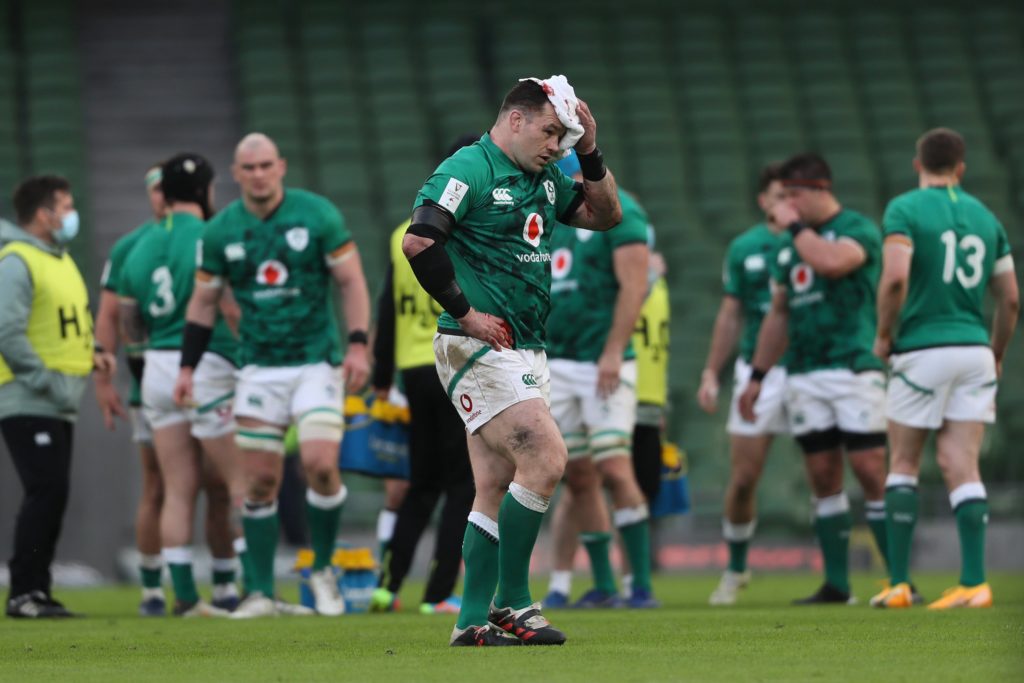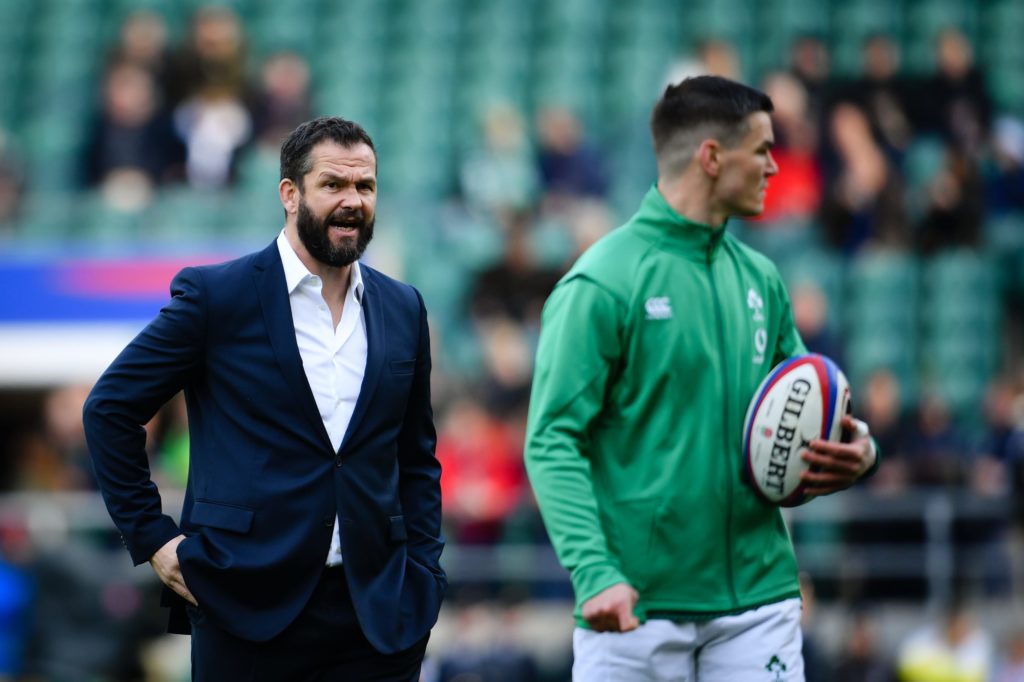It’s dark and cold on the night of November 17, 2018, in Dublin’s leafy suburbs where the lights from the Aviva Stadium beckon 51,000 people towards it like moths. There’s hope. Ireland, without a win over the All Blacks on home soil since time began, are Grand Slam winners and conquerors of every other team in the world’s top 10 across the previous 12 months. More than hope, belief flows through the city like Guinness from a tap.
A monumental 16-9 win follows, greeted with a roar at the final whistle that can be heard in neighbouring postcodes. The television camera pans in on Joe Schmidt who – in keeping with the drama – instantly shakes the hand of his defence coach, Andy Farrell, as if he is passing a baton. ‘There you go, old pal, it’s your turn to carry it now’.

Schmidt’s contract is running out. He says he’ll make a decision about his future a week from now. Ireland has never had a coach as successful or as loved as this one, so the days pass like hearses, slow and filled with dread. Eventually, Schmidt announces he’s moving on but not before he tells this story about returning to the team hotel after the All Blacks victory and meeting a couple of fans who had stayed in the stadium for two hours after the final whistle. “We didn’t want it to end,” they say to Schmidt.
But unbeknownst to them, to Schmidt, to all of us, it had. Ireland, handed the favourites’ tag for the following year’s World Cup by Steve Hansen, begin a downward trajectory, losing six of their subsequent 12 games in the Six Nations, including yesterday’s defeat by France. To add context to those figures, their previous six losses in the championship were spread across five seasons.
Ireland’s newbies have suffered from the shortened Champions Cup timetable this season, denying them the usual bridge from club level to the white heat of a Six Nations Test.
Only ghosts turned up in the Aviva yesterday. Coronavirus concerns prevent fans from attending, never mind staying a couple of hours after the full-time whistle. The passage of time has seen Schmidt return to New Zealand, Rob Kearney move to Australia, Rory Best to retirement. Further pain comes when Peter O’Mahony gets ruled out with suspension; Johnny Sexton, Conor Murray, Caelan Doris, Jacob Stockdale and James Ryan with injury.
Then, just after half-time, Cian Healy, Iain Henderson and Billy Burns are forced into the medic’s room for Head Injury Assessments. Tadhg Furlong, still rebuilding his fitness after nearly a year out, is still on the bench, leaving just four starters from that win over New Zealand out on the field. Still there aren’t complaints. “Obviously all those (missing) players have incredible experience and leadership abilities but there is leadership throughout the squad, pretty much from No1 to 15,” says Ronan Kelleher, the Irish tryscorer in the 15-13 defeat. “Everyone steps up.”

One small step for Kelleher is, however, a giant leap to the rest. Flat-track bullies in the PRO14, Ireland’s newbies have suffered from the shortened Champions Cup timetable this season, denying them the usual bridge from club level to the white heat of a Six Nations Test.
Worse again, a second straight defeat brings an unwelcome stat. It is 23 years since Ireland last lost their opening two games of the championship, a link to a different era when the whole set-up was a disorganised mess until one sunny afternoon in February 2000, when Warren Gatland fired five debutants into the fray for a game against Scotland that changed the course of Irish rugby. Already there have been calls now for Farrell to do something similar in a fortnight’s time against Italy, given that it’s ‘only’ Italy, also considering that this year’s championship is beyond them.
But it isn’t a like-for-like comparison. Those five future hall-of-famers from the class of 2000 – Ronan O’Gara, Peter Stringer, Shane Horgan, Simon Easterby and John Hayes – had been battle-hardened in European club rugby, whereas now the likeliest of likely lads, fly-half Harry Byrne, Craig Casey – Conor Murray’s heir apparent – and Ryan Baird, have barely started shaving.
As defence coach, you’ve about five things to worry about. As head coach that list stretches to about 55 things.
Former Ireland coach Eddie O’Sullivan
In any case, it’s not as if Farrell hasn’t experimented; 11 debutants coming on board in his 11-game tenure. They, as well as the older crew, have bought into the coach’s philosophy, evidenced by their comeback from 15-3 down yesterday to make a game of it. Tellingly, in all five of their losses over the past 12 months, they’ve staged last-quarter rallies. Spirit isn’t an issue.
Tactics are, though. The belated arrival of Paul O’Connell on to the coaching ticket has already made a difference to Ireland’s lineout, their solitary try yesterday coming from pressure applied on the French throw. Their scrum has also been solid in the opening two games. But their attacking play has too often been disconnected, their defence too prone to mistakes in the wide channels.

“As defence coach, you’ve about five things to worry about,” said Eddie O’Sullivan, the Ireland head coach from 2001 to 2008. “As head coach that list stretches to about 55 things.”
This, significantly, is Farrell’s first experience of the latter role.
We can’t confidently predict if it will get easier for him, if he’ll be able to marry his personable man-management skills with the Schmidt tactical template that served Ireland so well for so long, simply because we haven’t any previous material to compare it to.
We can say something definitive, though. There may be many of the same personnel from 2018 still involved in this Irish set-up but, despite once being able to beat the best teams in the world, those same players have subsequently discovered that they can’t beat time. It has moved on since that November evening in 2018. But Ireland haven’t.
More Ireland stories
If you’ve enjoyed this article, please share it with friends or on social media. We rely solely on new subscribers to fund high-quality journalism and appreciate you sharing this so we can continue to grow, produce more quality content and support our writers.


Comments
Join free and tell us what you really think!
Sign up for free